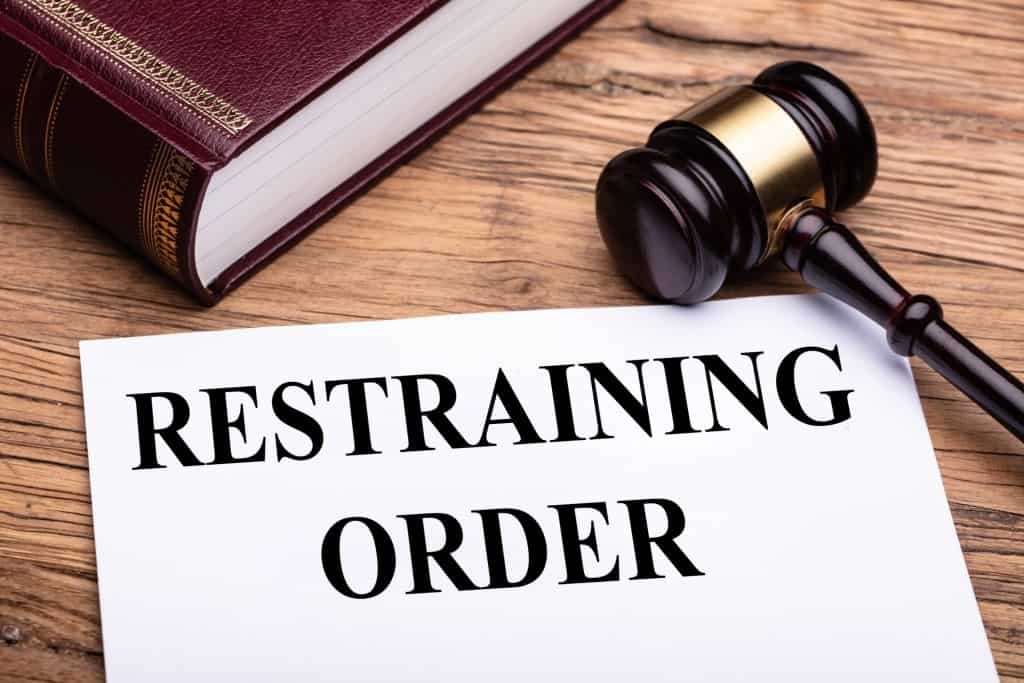Violating a restraining order in the state of Arizona is a serious charge that comes with serious repercussions, including fines, potential jail time, and even criminal charges. But before we discuss exactly what happens if you do violate an order of protection in Arizona, let’s first talk a little bit about what they are, what the implications are, and why you may have been ordered to stay away from a specific person or other entity in the state of Arizona.
What Exactly is a Restraining Order or Order of Protection in Arizona?
The state of Arizona defines a restraining order as an order of protection, offering protection from one individual to another against any potential acts of abuse of any kind, harassment, or other violations of the protection order holder’s rights and freedom of movement. Orders of protection are served to those defendants who the criminal court has decided could be a danger to the holder of the order of protection, and this could be simply based on that person’s fear of you or what you may do if the two of you come into contact.
Orders of protection can be served both to those who know one another well as well as to those who are strangers or virtual strangers to one another based upon the circumstances of the record of potential harassment. In Arizona, you can be served with an order of protection, an emergency order of protection, an injunction against harassment, or an injunction against workplace harassment — which one you are served with will depend on the circumstances surrounding the reasons for the order in the first place.
Who Can Have an Order of Protection Filed Against Them in Arizona?
This is an important question with a variety of disparate answers. In the state of Arizona, an order of protection can be served to any of the following people:
- A current or former husband or wife (spouse or ex-spouse)
- A person with whom you have lived, shared a household, been roommates, or cohabitated as an unmarried couple
- Any person with whom you have had or currently have a romantic and/or sexual relationship as defined by Arizona law
- A person who impregnated another person, or with whom you have a child or children in common
- Any relative of any kind, including the relatives of a current or former husband or wife (spouse or ex-spouse’s relatives), including your own parents, grandparents, in-laws of any kind, or siblings and step-siblings
Grounds for an Order of Protection in Arizona
An order of protection can be issued in Arizona based on any of the following activities:
- Assault or aggravated assault
- Harassment or aggravated harassment
- Domestic violence or aggravated domestic violence
- Abuse of a child or a vulnerable adult
- Criminal Damage(s)
- First, Second, and/or Third Degree criminal trespassing
- Any crimes against a minor(s)
- Kidnapping
- Stalking
- Custodial interference
- Endangerment of any person(s)
- Disorderly conduct
- Threatening and intimidating
- Surreptitious videotaping of any person(s) or other entities

I Have Violated My Arizona Order of Protection — Now What?
If you have violated the terms of your Arizona restraining order or order of protection anywhere within the state of Arizona, you may likely be charged with a restraining order violation. In essence, this means that the holder of the order of protection, known as the complainant, can then file a lawsuit against you as being in violation of the terms of the order of protection. That means that not only will the restraining order show up in your background checks, but so, too, will any violations of the terms of such orders.
A violation of an order of protection in Arizona is deemed a class 1 misdemeanor, but that may not stop the criminal court system from physically restraining you by way of detaining you, pending any judge’s or court’s final decisions based on the unique circumstances of your particular case.
If convicted of a violation of an order of protection in the state of Arizona, you could spend as much as 6 months in jail and pay fines and fees to the court up to a maximum of $2,500, along with a surcharge of 84%.
Fighting Order of Protection Violation Charges in Arizona
Your best bet is to try to seek the dismissal or perhaps even modification(s) to the order of protection against you, which criminal defense attorney Arja Shah can help you do. To get started with building your unique defense based on the circumstances surrounding your potential violation, give Arja Shah a call today at 602-560-7408. We’ll begin with your no-cost legal consultation and stay by your side until the fight for justice in your case is won.
